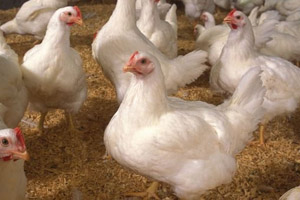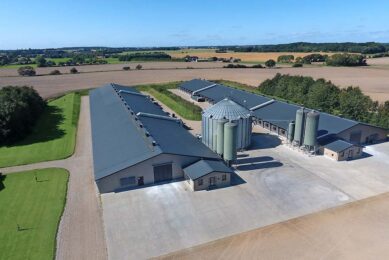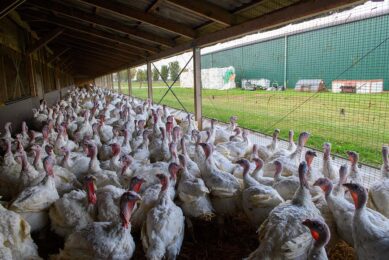Denmark’s organic broiler project

Researchers from Denmark’s Aarhus University are examining the effect of feed, breed and slaughter time on meat quality of organic chickens, as part of a larger project – SUMMER – aimed at encouraging organic meat consumption in consumers.
To get more consumers on the bandwagon and increase the demand of organic chickens, researchers from Aarhus University are developing organic chickens with a special quality.
In the research project, researchers investigated the effect of different feeding strategies on chicken breeds, slaughter time on meat quality, and the chickens’ health and welfare.
French or Danish?
The study includes three organic chicken breeds. One is the most widely used in Danish organic broiler production, JA757. The other two races in the experiment are of French origin. They grow slower than JA757 and differ in their behaviour, being generally more active and explorative. The behaviour may also be influenced by feeding strategy. The French chickens have a disposition for exploring, which can make a difference when they go outdoors and have the opportunity to forage. An outdoor area is included in the study. All chickens in the trial have to access the outdoor foraging area, which is stocked with various herbs and grasses. Here they find nourishment in the form of vegetables, seeds, beetles and caterpillars.
Options on several shelves
The Danish researchers are also comparing diets in two parallel strategies. In one flock the chickens were assigned a plain organic complete diet supplemented with whole wheat grains. In the second, the chickens were offered a feed based on various Danish-produced commodities. The two diets have different protein and commodity composition.
The chickens even get a choice between whole wheat and whole oats.
“We are interested in examining whether the chickens utilise outdoor area differently depending on which race they have and what food they get. We will also examine how much feed, not contributing to the chickens’ supply of nutrients”, said Sanna Steenfeldt from Aarhus University.
The chickens will be slaughtered at different ages in order to find possible differences in meat quality depending on breed and feeding strategy.
Broiler study is part of a larger project, SUMMER, which aims to increase consumer demand for organic meat.
The three-year project is an Organic RDD project, which is the Organic Research, Development and Demonstration Program under GUDP.
The project is funded by the Ministry of Food and coordinated by ICROFS.
Source: Aarhus University













